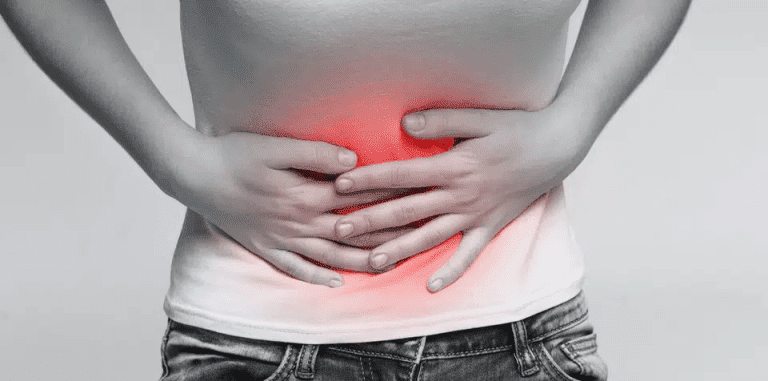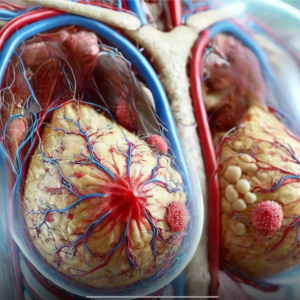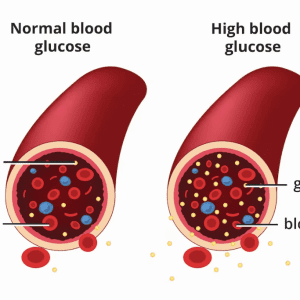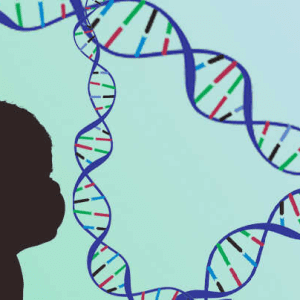Cancer can be a silent intruder, slowly making its way into your life without clear warning. While routine tests are essential, they’re not always enough to catch it early. Your body often sends subtle signals that shouldn’t be ignored. By being aware of these signs, you can take action before it’s too late. Let’s explore the 19 most commonly overlooked cancer warning signs you need to know.
Why You Should Pay Attention to Early Cancer Signs
Your body has a remarkable way of alerting you when something is wrong. Often, the signs of cancer can mimic less severe conditions, making them easy to dismiss. However, staying vigilant and recognizing these warning signs could be lifesaving. Early detection improves the chances of successful treatment, so it’s crucial to understand the signals your body might be sending.
1. Wheezing or Shortness of Breath: A Subtle Red Flag

Have you noticed that you’re suddenly out of breath after minimal activity? Wheezing or shortness of breath can be one of the earliest symptoms of lung cancer. Patients often recall this as a persistent issue that didn’t seem significant at first. If breathing feels more labored than usual, it’s time to get checked.
Video:
8 Signs that You have Cancer
2. Chronic Cough or Chest Pain: More Than Just a Cold
A lingering cough or unexplained chest pain might be more than just bronchitis or a stubborn cold. Lung cancer and leukemia often present with symptoms similar to respiratory infections. If the pain radiates to your shoulder or arm, it’s even more concerning. Persistent coughing that doesn’t improve should never be ignored.
3. Frequent Fevers or Infections: A Weakened Immune System
Recurring fevers or infections can indicate leukemia, a type of blood cancer that affects bone marrow function. Your immune system becomes compromised, making you more susceptible to illnesses. If you’re catching infections more frequently, it’s worth discussing with your doctor.
4. Difficulty Swallowing: A Sign of Esophageal or Throat Cancer

Have you found it harder to swallow food or liquids lately? Difficulty swallowing can be linked to esophageal or throat cancer and sometimes even lung cancer. If this issue persists or worsens, it’s essential to seek medical advice.
5. Swollen Lymph Nodes or Lumps: A Sign of Lymphatic Changes
Swelling in the lymph nodes, particularly in the neck, underarms, or groin, can indicate changes in your lymphatic system. This is often associated with lymphoma or other cancers. Any unexplained lump that doesn’t go away needs evaluation.
6. Excessive Bruising or Bleeding: Platelet Problems

Have you noticed unexplained bruises appearing more frequently? Excessive bleeding or bruising may indicate a problem with your blood’s ability to clot, often linked to leukemia. As the disease progresses, it affects the production of platelets, leading to unusual bleeding.
7. Unexplained Weakness and Fatigue: Beyond Being Tired
We all feel tired sometimes, but cancer-related fatigue is different. It’s persistent, overwhelming, and doesn’t improve with rest. This type of fatigue can signal various cancers, especially if it’s accompanied by other symptoms. If you’re feeling unusually drained, it’s time to see a doctor.
Video:
Cancer, early warning signs
8. Bloating or Abdominal Weight Gain: A Warning from Your Belly
Persistent bloating, especially if it appears suddenly or doesn’t go away, might indicate ovarian cancer. You may also notice abdominal swelling or unexpected weight gain. If this bloating becomes a regular issue, get it checked.
9. Loss of Appetite and Feeling Full Quickly: A Digestive Concern
Do you find yourself feeling full after just a few bites? A reduced appetite and early satiety can be signs of ovarian or stomach cancer. When this change in eating habits becomes consistent, it’s a good idea to investigate.
10. Pelvic or Abdominal Pain: More Than Just Cramps

Pelvic discomfort or lower abdominal pain can signal ovarian cancer, especially when paired with bloating and appetite loss. In some cases, it may also indicate leukemia. Persistent pain in these areas warrants further medical examination.
11. Rectal Bleeding or Blood in Stool: A Colorectal Cancer Indicator
Seeing blood in your stool can be alarming, and rightly so. Even small amounts of blood can indicate colorectal cancer. Don’t dismiss it as a minor issue—schedule a colonoscopy to understand the cause.
12. Unexplained Weight Loss: A Potential Red Flag
Losing weight without changing your diet or activity level can be a sign of cancer, particularly digestive or liver cancer. The rapid breakdown of body tissue can cause weight loss even when your eating habits remain the same.
13. Chronic Stomach Upset or Pain: An Early Digestive Issue
Frequent stomach cramps or abdominal discomfort could point to colorectal cancer. If your stomach issues persist despite dietary adjustments, it’s time to investigate further.
14. Breast Changes: Redness, Swelling, or Pain
Any unexplained changes in your breasts, including redness, swelling, or discomfort, could be warning signs of inflammatory breast cancer. If you notice any abnormalities, don’t hesitate to see a healthcare professional.
15. Nipple Changes: A Visible Sign of Trouble
An inverted or flattened nipple can be an early indicator of breast cancer. Changes in the appearance or sensitivity of your nipples should always be taken seriously and assessed by a specialist.
16. Unusual Bleeding Between Periods: A Gynecological Concern

Bleeding outside of your normal menstrual cycle can indicate uterine or endometrial cancer. Whether it’s spotting or heavy bleeding, getting a transvaginal ultrasound can help determine the cause.
17. Facial Swelling or Puffiness: A Clue from Your Appearance
Swelling in the face, particularly around the eyes, can be a sign of lung cancer. This occurs when a tumor in the chest obstructs blood flow, causing puffiness. If you notice this change, consult a healthcare provider.
18. Persistent Skin Sores or Lumps: A Skin Cancer Alert
Non-healing sores or crusty lumps that bleed easily could indicate skin cancer. Watch for changes in moles or any new growths that don’t fade. Early intervention is key to successful treatment.
19. Changes in Nails: A Subtle Yet Telling Sign
Look closely at your nails. A dark streak under the nail could indicate skin cancer. Curved or clubbed nails might suggest lung cancer, while pale nails may point to liver issues. Keeping an eye on these small changes can offer early clues.
Conclusion
Your body is constantly communicating with you, even when something serious like cancer is developing. These 19 warning signs can often serve as early indicators that shouldn’t be ignored. By paying attention to subtle changes and seeking medical advice promptly, you can catch potential problems before they escalate. Early detection is crucial for improving treatment outcomes, so trust your instincts and take action when something feels off. Your health is worth it—don’t wait until it’s too late.


